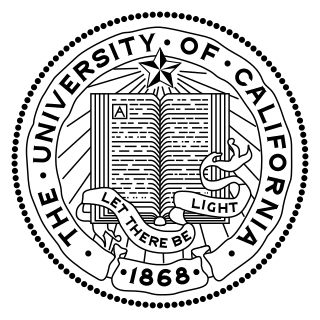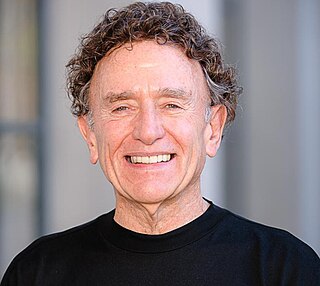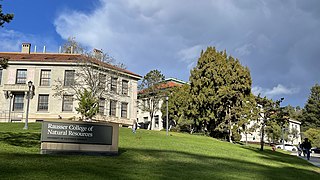
The University of California (UC) is a public land-grant research university system in the U.S. state of California. Headquartered in Oakland, the system is composed of its ten campuses at Berkeley, Davis, Irvine, Los Angeles, Merced, Riverside, San Diego, San Francisco, Santa Barbara, and Santa Cruz, along with numerous research centers and academic abroad centers. The system is the state's land-grant university. Major publications generally rank most UC campuses as being among the best universities in the world. In 1900, UC was one of the founders of the Association of American Universities and since the 1970s seven of its campuses, in addition to Berkeley, have been admitted to the association. Berkeley, Davis, Santa Cruz, Irvine, Los Angeles, Santa Barbara, and San Diego are considered Public Ivies, making California the state with the most universities in the nation to hold the title. UC campuses have large numbers of distinguished faculty in almost every academic discipline, with UC faculty and researchers having won 71 Nobel Prizes as of 2021.

The University of California, Berkeley, is a public land-grant research university in Berkeley, California. It was established in 1868 as the University of California and is the state's first land-grant university and the founding campus of the University of California system. Berkeley has been regarded to be among the top universities worldwide.

The University of California, Davis, is a public land-grant research university near Davis, California. Named a Public Ivy, it is the northernmost of the ten campuses of the University of California system. The institution was first founded as an agricultural branch of the system in 1905 and became the seventh campus of the University of California in 1959.

Richard Charles Blum was an American investor and the husband of United States Senator Dianne Feinstein. He was the chairman and president of Blum Capital, an equity investment management firm. Blum was on the boards of directors of several companies, including CB Richard Ellis, where until May 2009 he served as the chairman of that board. He was a regent of the University of California from 2002 until his death.

The University of California, Riverside is a public land-grant research university in Riverside, California. It is one of the ten campuses of the University of California system. The main campus sits on 1,900 acres (769 ha) in a suburban district of Riverside with a branch campus of 20 acres (8 ha) in Palm Desert. In 1907, the predecessor to UCR was founded as the UC Citrus Experiment Station, Riverside which pioneered research in biological pest control and the use of growth regulators.
The history of the University of California, Riverside, or UCR, started in 1907 when UCR was the University's Citrus Experiment Station. By the 1950s, the University had established a teaching-focused liberal arts curriculum at the site, in the spirit of a small liberal arts college, but California's rapidly growing population made it necessary for the Riverside campus to become a full-fledged general campus of the UC system, and it was so designated in 1959.

Claude Burton Hutchison was an American botanist, agricultural economist, educator, and politician who served as the mayor of Berkeley, California, from 1955 to 1963.
The University of California Citrus Experiment Station is the founding unit of the University of California, Riverside campus in Riverside, California, United States. The station contributed greatly to the cultivation of the orange and the overall agriculture industry in California. Established February 14, 1907, the station celebrated its 100th anniversary in 2007.

Gordon Rausser is an American economist. He is currently the Robert Gordon Sproul Distinguished Professor Emeritus, Dean Emeritus, at Rausser College of Natural Resources and more recently, a professor of the graduate school at the University of California, Berkeley. On three separate occasions, he served as chairman of the Department of Agriculture and Resource Economics, served two terms as Dean of the Rausser College of Natural Resources, and has served on the board of trustees of public universities and one private university. Rausser has been appointed to more than 20 board of directors of both private and publicly traded companies, including chairman of several of such boards.
The Association of Environmental and Resource Economists (AERE) was founded in 1979 in the United States as a means of exchanging ideas, stimulating research, and promoting graduate training in environmental and natural resource economics. The majority of its members are affiliated with universities, government agencies, non-profit research organizations, and consulting firms. Many of AERE's members hold graduate degrees in economics, agricultural economics, or related fields, but there are numerous student members as well. The organization also serves many non-specialist members with environmental policy interests. The United States is the country with the largest single share of AERE members, but the organization welcomes members from all countries. Annual individual memberships currently number approximately 800. AERE is generally acknowledged as the primary professional organization for Environmental and Natural Resources economists in the USA. The European Association of Environmental and Resource Economists is its European equivalent.

Colin Andre Carter is Professor of Agricultural and Resource Economics at the University of California, Davis. His research/teaching interests include international trade, futures markets, and commodity markets.
The history of the University of California, Berkeley begins on October 13, 1849, with the adoption of the Constitution of California, which provided for the creation of a public university. On Charter Day, March 23, 1868, the signing of the Organic Act established the University of California, with the new institution inheriting the land and facilities of the private College of California and the federal funding eligibility of a public agricultural, mining, and mechanical arts college.
The Water Resources Collections and Archives (WRCA), formerly known as the Water Resources Center Archives, is an archive with unpublished manuscript collections and a library with published materials. It was established to collect unique, hard-to-find, technical report materials pertaining to all aspects of water resources and supply in California and the American West. Located on the campus of the University of California Riverside (UCR), it is jointly administered by the UCR College of Natural and Agricultural Sciences (CNAS) and the UCR Libraries. WRCA was part of the University of California Center for Water Resources (WRC) that was established and funded in 1957 by a special act of the California State Legislature and was designated the California Water Research Institute by a federal act in 1964.

Harrison Richard Wellman was professor of agricultural economics at the University of California, Berkeley, and became acting president of the University of California in 1967.

Amadeo Pietro Giannini, also known as Amadeo Peter Giannini or A. P. Giannini was an Italian-American banker who founded the Bank of Italy, which became Bank of America. Giannini is credited as the inventor of many modern banking practices. Most notably, Giannini was one of the first bankers to offer banking services to middle-class Americans, mainly Italian immigrants, rather than only the upper class. He also pioneered the holding company structure and established one of the first modern trans-national institutions.
George Garrett Judge is an American econometrician and Professor in the Graduate School in the Department of Agricultural and Resource Economics in the UC Berkeley College of Natural Resources.
Refugio I. Rochin is an American professor emeritus in agricultural and resource economics and Chicana/o studies at the University of California, Davis, director emeritus at the University of California, Santa Cruz, and instructor at Pennsylvania State University World Campus. He is an expert on rural Latinas/os and Latina/o Studies.

Elisabeth Sadoulet is an economist and Professor of Agricultural and Resource Economics at the University of California, Berkeley who has carried out field research in China, India, Latin America, and sub-Saharan Africa. Sadoulet was the editor of the World Bank Economic Review from 2010 to 2013, and is a fellow of several scholarly associations in the fields of agriculture and economics.

Giannini Hall is a historical building in Berkeley, California on the University of California Berkeley.. The Giannini Hall was built in 1930. The Giannini Hall building was listed on the National Register of Historic Places on March 25, 1982. The Giannini Hall was designed by architect William Charles Hays, with University of California, Berkeley. The Agricultural Complex has three buildings, Hilgard Hall, Wellman Hall, and Giannini Hall. Giannini Hall was funded by a donation from the Bancitaly Corporation, which also funded the The Giannini Foundation of Agricultural Economics in honor of Amadeo P. Giannini. Amadeo Pietro Giannini (1870–1949) was an Italian-American banker, he founded the Bank of Italy, which later became Bank of America. In honor of his Italian roots, the had old Tuscan farm style. Giannini Hall as buildings built around a center courtyard. The garden at the hall used stone pines, cypresses, and olive trees. Giannini Hall hold the agriculture research library.













